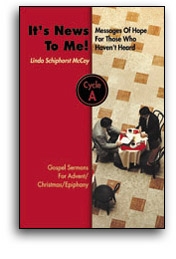SermonStudio
When We Don't Know
Sermon
It's News To Me: Messages of Hope for Those Who Haven't Heard
Cycle A Gospel Sermons For Advent, Christmas, Epiphany
Just a few days before writing this message, I conducted a memorial service for a 60-year-old man who was the picture of health until three months before his death. He was active, vibrant, only recently retired, and looking forward to years of good life with his wife and family and friends. Nonetheless, pancreatic cancer had done its work, and quickly, and he was gone. It was the general consensus that it was too soon for his life to end; he was too young to die.


